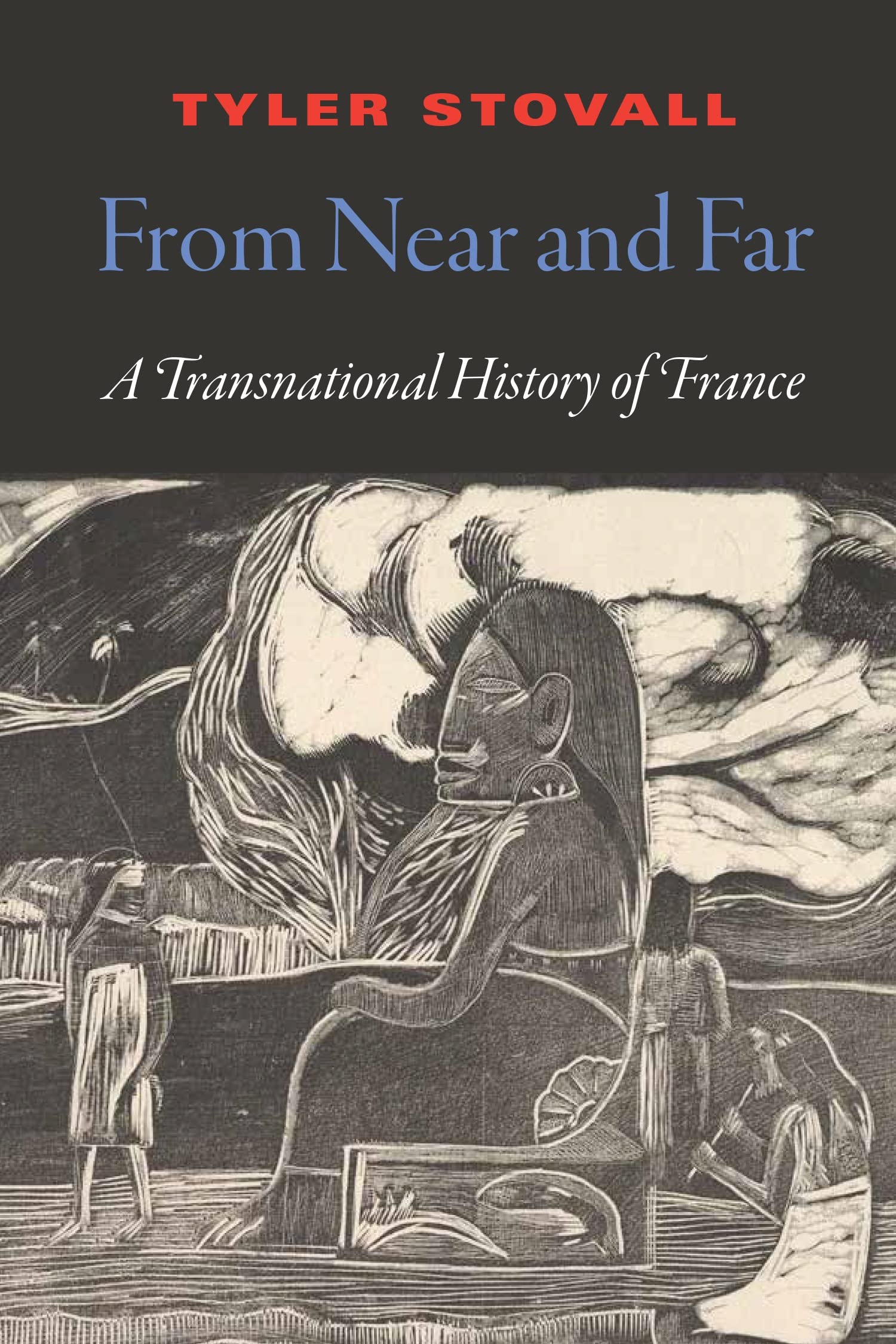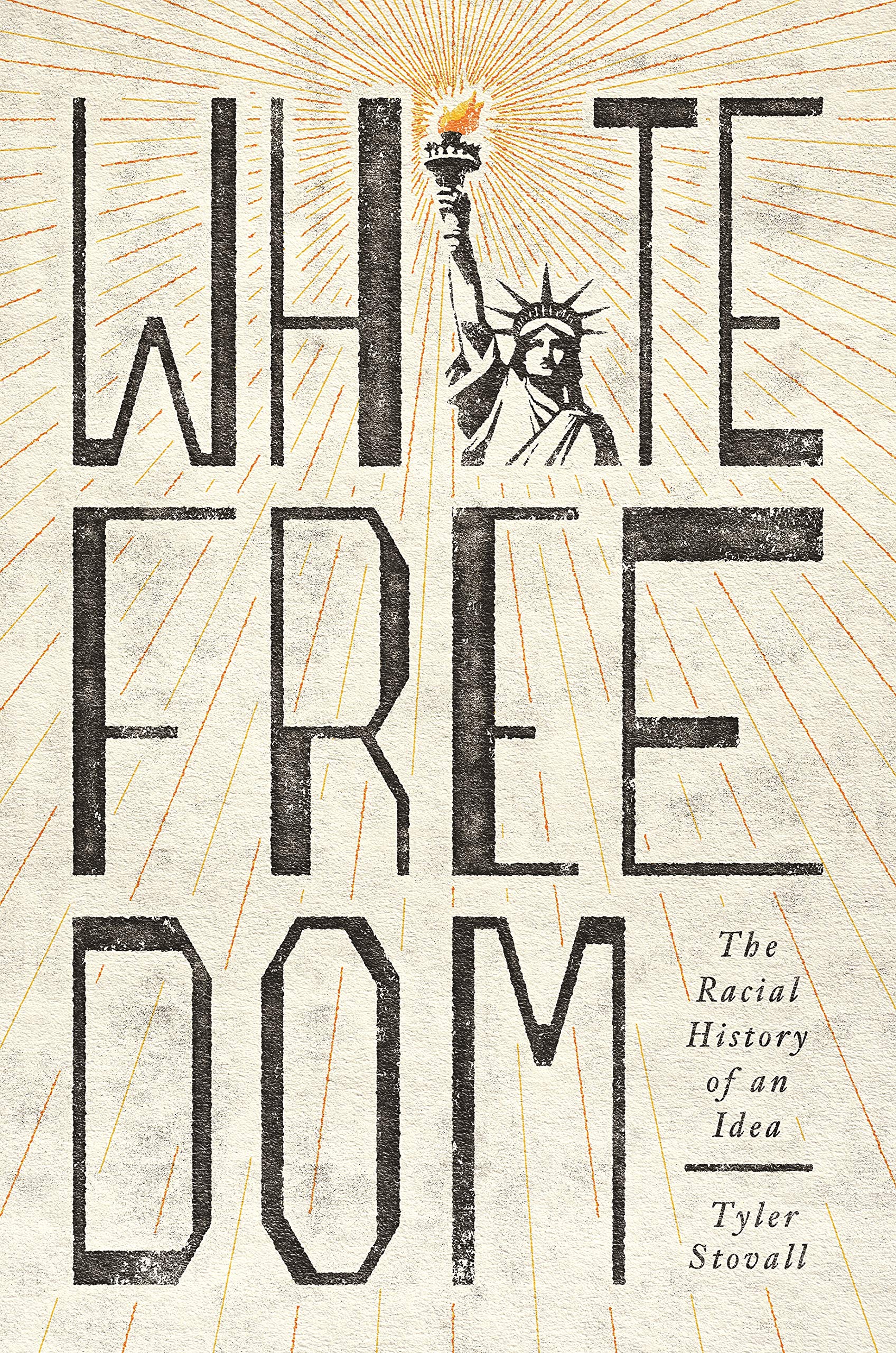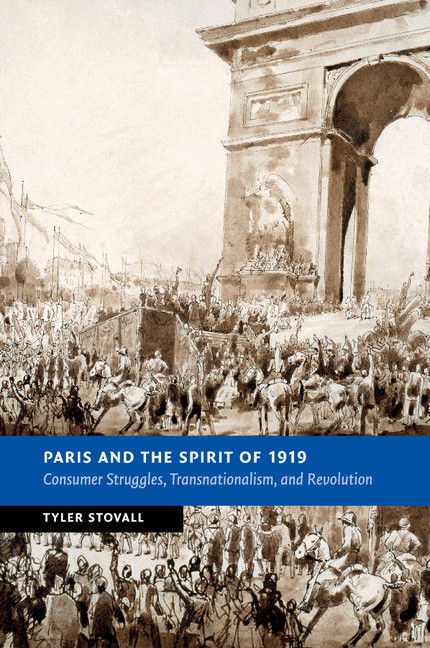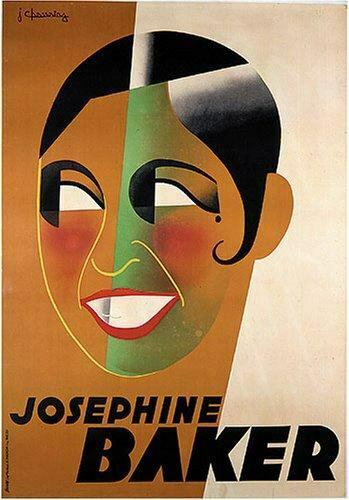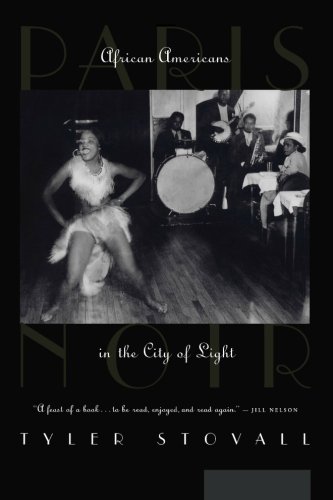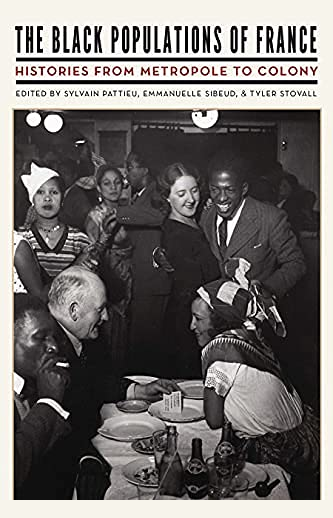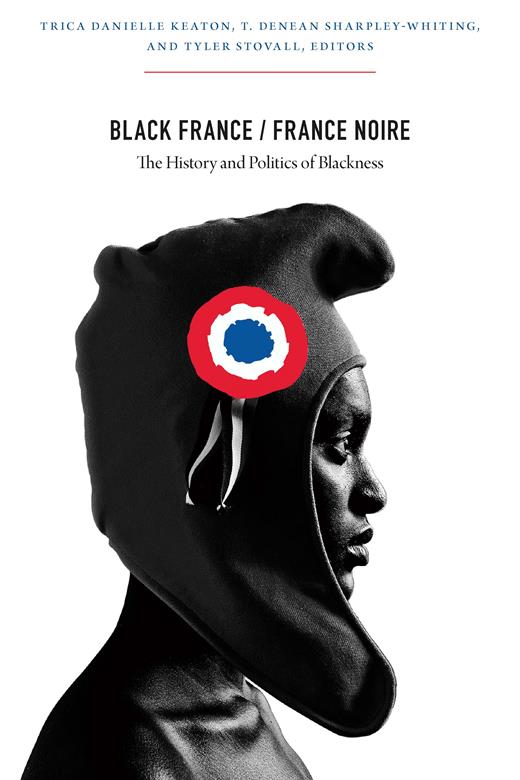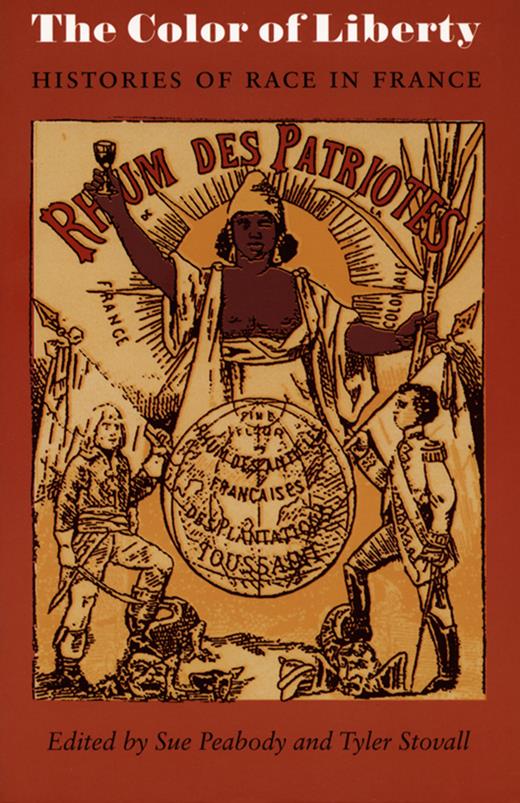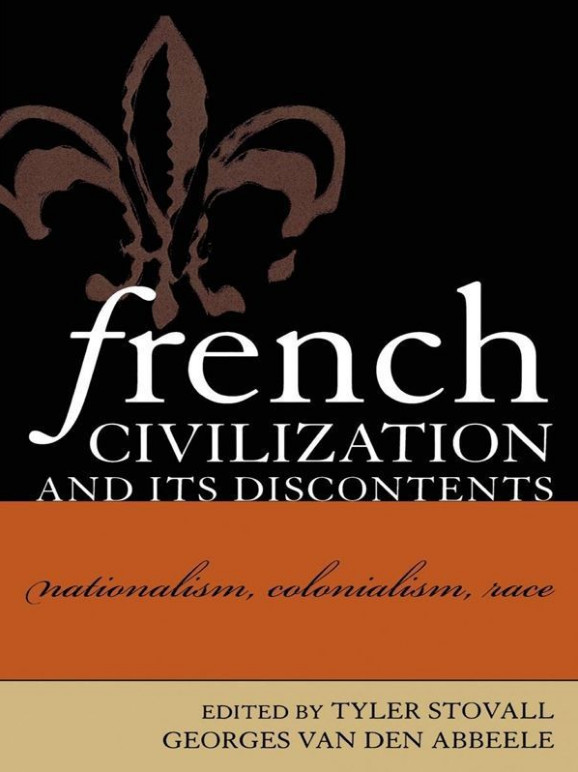Books authored by Tyler Stovall:
From Near and Far relates the history of modern France from the French Revolution to the present. Noted historian Tyler Stovall considers how the history of France interacts with both the broader history of the world and the local histories of French communities, examining the impacts of Karl Marx, Ho Chi Minh, Paul Gauguin, and Josephine Baker alongside the rise of haute couture and the contemporary role of hip hop.
From Near and Far focuses on the interactions between France and three other parts of the world: Europe, the United States, and the French colonial empire. Taking this transnational approach to the history of modern France, Stovall shows how the theme of universalism, so central to modern French culture, has manifested itself in different ways over the last few centuries. Moreover, it emphasizes the importance of narrative to French history, that historians tell the story of a nation and a people by bringing together a multitude of stories and tales that often go well beyond its boundaries. In telling these stories From Near and Far gives the reader a vision of France both global and local at the same time.
The era of the Enlightenment, which gave rise to our modern conceptions of freedom and democracy, was also the height of the trans-Atlantic slave trade. America, a nation founded on the principle of liberty, is also a nation built on African slavery, Native American genocide, and systematic racial discrimination. White Freedom traces the complex relationship between freedom and race from the eighteenth century to today, revealing how being free has meant being white.
Tyler Stovall explores the intertwined histories of racism and freedom in France and the United States, the two leading nations that have claimed liberty as the heart of their national identities. He explores how French and American thinkers defined freedom in racial terms and conceived of liberty as an aspect and privilege of whiteness. He discusses how the Statue of Liberty—a gift from France to the United States and perhaps the most famous symbol of freedom on Earth—promised both freedom and whiteness to European immigrants. Taking readers from the Age of Revolution to today, Stovall challenges the notion that racism is somehow a paradox or contradiction within the democratic tradition, demonstrating how white identity is intrinsic to Western ideas about liberty. Throughout the history of modern Western liberal democracy, freedom has long been white freedom.
A major work of scholarship that is certain to draw a wide readership and transform contemporary debates, White Freedom provides vital new perspectives on the inherent racism behind our most cherished beliefs about freedom, liberty, and human rights.
Now in its second edition, Tyler Stovall’s Transnational France takes a transnational approach to the history of modern France that draws the reader into a key aspect of France’s political culture: universalism.
Beginning with the French Revolution and its aftermath, Stovall traces French history right up to the present day and examines France’s relations with three other areas of the world: Europe, the United States, and France’s colonial empire. The book shines a light onto both French identity and the history of the world more broadly, which allows the reader to engage with French history in a much wider context. This new edition features an additional chapter on France in the twenty-first century that offers an analysis of current events and issues as seen through historical perspective. Issues addressed include anti-Semitism, Islamophobia, and the gilets jaunes, as well as the impact of Brexit, the maturation of the National Front under Marine LePen, and the administration of Emmanuel Macron.
Giving a global view of France’s history, this is the perfect volume for students of modern France and French history courses.
This transnational history of Paris in 1919 explores the global implications of the revolutionary crisis of French society at the end of World War I. As the site of the Peace Conference, Paris was a victorious capital and a city at the center of the world, and Tyler Stovall explores these intersections of globalization and local revolution. The book takes as its central point the eruption of political activism in 1919, using the events of that year to illustrate broader tensions in working class, race and gender politics in Parisian, French and ultimately global society which fueled debates about colonial subjects and the empire. Viewing consumerism and consumer politics as key both to the revolutionary crisis and to new ideas about working class identity, and arguing against the idea that consumerism depoliticized working people, this history of local labor movements is a study in the making of the modern world. Learn more about Paris and the Spirit of 1919.
Born Freda Josephine McDonald in St. Louis, Missouri, in 1906, Josephine Baker ran away from home at age thirteen to join a traveling road show. Later, after touring the country as a dancer, she left the United States for Paris. There, she starred in the groundbreaking musical revue La Revue Negre and quickly became the toast of Paris and Europe. Her versatility and flair for performance complemented Paris in the 1920s-which embraced the Charleston and a progressive new musical language called jazz.
Created to commemorate the 100th anniversary of the celebrated African American entertainer, Josephine Baker: Image and Icon uses lavish illustrations and informative essays to tell the story of a legendary performer whose appeal transcended race, country, and culture. This rich, once-in-a-lifetime volume gathers photographs, posters, drawings, prints, and sculpture to tell the story of Baker's life and contributions to 20th century culture. An essay by Bennetta Jules-Rosette offers a biographical overview of the performer's career, and Olivia Lahs-Gonzales places Baker in context as Modern Woman.
Josephine Baker: Image and Icon, through words and rare images, captures the beauty of a groundbreaking artist and her significance. It also serves as the companion to the exhibit opening April 21, 2006, at The Sheldon Art Galleries in St. Louis.
This book focuses in particular on the French role in a global context, and on relations with the US, Europe and the French Empire. Tyler Stovall explores the French post-war recovery and the thirty years of prosperity that followed. Arranged in a broad chronological framework, the book examines the wars France fought against national independence movements in the 1950s and 1960s, and developments in French culture and the intelligentsia, from the events of 1968 to Euro-Disney. The Mitterand era is scrutinized, with coverage of the rising tide of the extreme right, racial conflict and immigration, and new relations with Europe in the post-Soviet era.
Paris Noir fills a grievous gap in the fascinating history of American expatriates who chose to live in Paris in the twentieth century. Alongside Ernest Hemingway, Gertrude Stein, and Henry Miller was an avant-garde and tightly knit community of African Americans who found in Paris the artistic, racial, and emotional freedom denied them back home. The writers James Baldwin and Richard Wright; the jazz musicians Miles Davis, Charlie Parker, Sidney Bechet; and the artists Henry Ossawa Tanner, Lois Mailou Jones, and Jean-Michel Basquiat are among the score of exiles for whom Paris symbolized a color-blind society. Unlike their white compatriots, African Americans in Paris rejected not only American society, but also their victimized status in the U.S. And while black and white Americans inhabited different worlds even in Paris, they found meeting grounds in such places as Bricktop's jazzy nightclub, where the flamboyant owner taught Cole Porter to dance the Charleston. As the historian John Merriman proclaimed, "With skill and passion, Stovall brings this vibrant community to life."
From 1920 until the present, the working-class suburbs of Paris, known as the Red Belt, have constituted the heart of French Communism, providing the Party not only with its most solid electoral base but with much of its cultural identity as well. Focusing on the northeastern suburb of Bobigny, Tyler Stovall explores the nature of working-class life and politicization as he skillfully documents how this unique region and political culture came into being. The Rise of the Paris Red Belt reveals that the very process of urban development in metropolitan Paris and the suburbs provided the most important opportunities for the local establishment of Communist influence.
The rapid increase in Paris' suburban population during the early twentieth century outstripped the development of the local urban infrastructure. Consequently, many of these suburbs, often represented to their new residents as charming country villages, soon degenerated into suburban slums. Stovall argues that Communists forged a powerful political block by mobilizing the disillusionment and by improving some of the worst aspects of suburban life.
As a social history of twentieth-century France, The Rise of the Paris Red Belt calls into question traditional assumptions about the history of both French Communism and the French working-class. It suggests that those interested in working-class politics should consider the significance of residential and consumer issues as well as those relating to the workplace. It also suggests that urban history and urban development should not be considered autonomous phenomena, but rather expressions of class relations. The Rise of the Paris Red Belt brings to life a world whose citizens, though often overlooked, are nonetheless the history of modern France.
Books edited by Tyler Stovall:
The Black Populations of France is a study of Black peoples and their history in France and the French Empire during the modern era, from the eighteenth century to the present. The contributors to this collection explore three main axes. The first addresses circulations—the ways Black populations have moved through the spaces of metropolitan France and the empire—and focuses on the actors themselves and the margins of maneuver available to them, particularly as soldiers, sailors, immigrants, or political militants. The second considers legacies and the ways the past has informed the present, addressing themes such as the memory of slavery, the histories of Black women and gender, and the historical influence of African Americans on Blacks in France. The final axis considers racial policy and the ways the state has shaped racial discourses through the interactions between state policies and ideas of race developed by individuals, organizations, and communities. The Black Populations of France makes an important contribution to both modern French history and the history of the global Black diaspora. By putting these histories in dialogue with each other, it underscores the central place of France in world history.
In Black France / France Noire, scholars, activists, and novelists from France and the United States address the untenable paradox at the heart of French society. France's constitutional and legal discourses do not recognize race as a meaningful category. Yet the lived realities of race and racism are ever-present in the nation's supposedly race-blind society. The vaunted universalist principles of the French Republic are far from realized. Any claim of color-blindness is belied by experiences of anti-black racism, which render blackness a real and consequential historical, social, and political formation. Contributors to this collection of essays demonstrate that blackness in France is less an identity than a response to and rejection of anti-black racism. Black France / France Noire is a distinctive and important contribution to the increasingly public debates on diversity, race, racialization, and multicultural intolerance in French society and beyond.
France has long defined itself as a color-blind nation where racial bias has no place. Even today, the French universal curriculum for secondary students makes no mention of race or slavery, and many French scholars still resist addressing racial questions. Yet, as this groundbreaking volume shows, color and other racial markers have been major factors in French national life for more than three hundred years. The sixteen essays in The Color of Liberty offer a wealth of innovative research on the neglected history of race in France, ranging from the early modern period to the present.
The Color of Liberty addresses four major themes: the evolution of race as an idea in France; representations of "the other" in French literature, art, government, and trade; the international dimensions of French racial thinking, particularly in relation to colonialism; and the impact of racial differences on the shaping of the modern French city. The many permutations of race in French history—as assigned identity, consumer product icon, scientific discourse, philosophical problem, by-product of migration, or tool in empire building—here receive nuanced treatments confronting the malleability of ideas about race and the uses to which they have been put.
What happens when the study of French is no longer coterminous with the study of France? French Civilization and Its Discontents explores the ways in which considerations of difference, especially colonialism, postcolonialism, and race, have shaped French culture and French studies in the modern era. Rejecting traditional assimilationist notions of French national identity, contributors to this groundbreaking volume demonstrate how literature, history, and other aspects of what is considered French civilization have been shaped by global processes of creolization and differentiation. This book ably demonstrates the necessity of studying France and the Francophone world together, and of recognizing not only the presence of France in the Francophone world but also the central place occupied by the Francophone world in world literature and history.
Learn more about French Civilization and its Discontents here.
Academic Journal Articles
“Travailleurs de couleur dans la France de l’entre-deux-guerres,” in Nicolas Hatzfeld, Michel Pigenet, and Xavier Vigna, eds., Travail, travailleurs et ouvriers dEurope au xxème siècle (Dijon: Éditions universitaires de Dijon). (2016)
“Outer Cities: Visions américaines de la banlieue française,” in Bernard Wallon, ed., Banlieues vues d’ailleurs (Paris: CNRS Éditions) (2016)
“Le tourisme noir américain à Paris,” in Sylvain Pattieu, ed., Bons Baisers de Paris: 500 Ans de tourisme dans la capitale (Paris: Comité d’Histoire de la Ville de Paris) (2016)
“Empires of Democracy,” in Graham Huggins, ed., The Oxford Handbook of Postcolonial Studies (Oxford: Oxford University Press) (2014)
“Entre espoir et désespoir: la France contemporaine et sa banlieue,” in Jean-François Sirinelli, ed., La France Qui Vient (Paris, Editions aux CNRS) (2014)
“Black Paris and the Making of the Twentieth Century,” in Kate Marsh and Fionnghuala Sweeney, Afromodernisms: Paris, Harlem, and the Avant-Garde (Edinburgh, Edinburgh University Press) (2013)
“Pioneer and Sage: Henry Ossawa Tanner and the African-American Community in Paris, “in Anna Marley, ed., Henry O. Tanner: An International Perspective , (University of California Press) (2012)
"Civil Rights Meets Decolonization: Transnational Visions of the Struggle for Racial Equality in France and America," in World History Bulletin 26, no. 1 (special issue on France in World History, ed. Alyssa Goldstein Sepinwall and Michael G. Vann), pp. 26-31
"Who is French? - Intersections of Race and Gender in French History,” special issue of French Historical Studies, co-edited with Jennifer Boittin, vol. 33/#3 (Summer) (2010)
“Blackness, Diversity, and French Identity”, in David Murphy and Charles Forsdick, eds., Postcolonial Thought in the Francophone World , (Liverpool University Press). (2009)
“No Green Pastures: the African-Americanization of France”, in Elisabeth Mudimbe-Boyi, ed., Empire Lost: France and its Other Worlds , Lexington Press (2009)
“No Green Pastures: the African-Americanization of France”, in Darlene Clark Hine, Trica Danielle Keaton, and Stephen Small, eds., Black Europe and the African Diaspora (Urbana and Chicago: University of Illinois Press) (2009)
“Beyond Dead White Males: Towards a Post-colonial History of Europe,” in Francophone Postcolonial Studies, special issue “France, Europe, and the Postcolonial” (2008)
“From Mother Africa to Blacks with Accents: Diaspora and African American Studies in the United States”, in Michelle Bertho and Beverly Crawford, eds., The Impact of Globalization (Praeger) (2008)
“French Colonial Urbanism,” W. Brian Newsome and Tyler Stovall, eds, special issue of Historical Reflections/Reflexions Historiques (vol. 33/#2, Summer) (2007)
“Josephine Baker and the World of Black Montmartre”, in Olivia Lahs-Gonzales, ed., Josephine Baker: Image and Icon (Reedy Press) (2006)
“Ethnicity in 19th Century Europe”, in John Merriman and Jay Winter, editors in chief, Encyclopedia of Europe, 1789-1914 (Charles Scribner’s Sons) (2006)
“Race and the Making of the Nation: Blacks in Modern France”, in Michael Gomez, ed., Diasporic Africa (New York University Press) (2006)
“Black Community, Black Spectacle: Performance and Race in Trans-Atlantic Perspective”, in Harry Elam/Kennell Jackson, eds., Black Cultural Traffic (University of Michigan Press) (2005)
“Murder in Montmartre: Race, Sex, and Crime in Jazz Age Paris”, Françoise Lionnet and Shu-mei Shih, Minor Transnationalisms (Duke University Press) (2005)
"Love, Labor, and Race: Colonial Men and White Women in France during the Great War," included in Stovall/Abbeele, French Identity (2003)
“From Red Belt to Black Belt: Race, Class and Urban Marginality in Twentieth Century Paris”, in Peabody/Stovall, The Color of Liberty (2003)
“Gender, Race, and Miscegenation: African Americans in Jazz Age Paris”, in Whitney Chadwick/Tirza Latimer, eds., The Modern Woman Revisted: Paris between the Wars (Rutgers University Press) (2003)
"The Oldest Negro in Paris," in K. Steven Vincent and Alison Klairmont-Lingo, eds., The Human Tradition in Modern France (Scholarly Resources) (2000)
"Color-blind France? Colonial Workers During the First World War," reprinted in Alice Conklin and Ian Christopher Fletcher, European Imperialism: Climax and Contradiction (Boston: Houghton-Mifflin) (1998)
"Urbanization," in Peter Stearns, ed., The Encyclopedia of Social History (1994)
American Historical Association Magazine Articles
January 2017: Bound and Gagged: Thoughts on the History of the 21st Century
March 2017: Diversity and Segregation
April 2017: Happy Anniversary? Historians and the Commemoration of the Past
May 2017: Race, Class, and History in the Trump Era
September 2017: A Continent among Continents: European History Today
October 2017: The Personal is Historical: What to Do When Your Profession Catches Up to You
November 2017: Voyage to the Dark Side? The Historian as Administrator

